If cruising is the answer for Liverpool, what was the question?
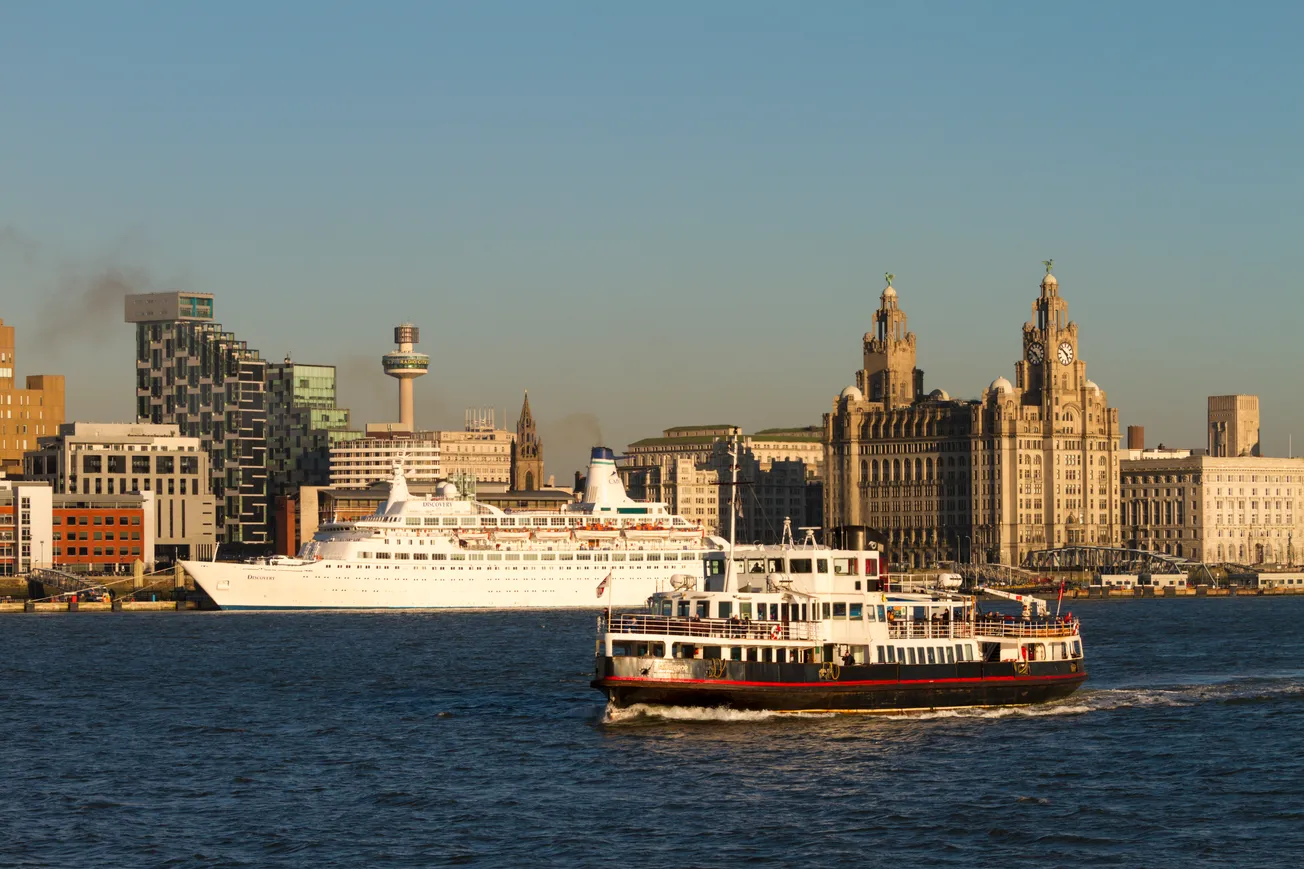
'It didn't sound like a cruise. It sounded like a migraine with life rafts'
To stop her from staring at her own four walls during that strange half-light after lockdown but before international travel, my friend Denise was regularly to be seen driving down to Southampton to board one of those massive cruise liners that took her back home again on a round Britain tour.
The ship would take in Greenock docks, Leith, Southampton and Belfast while its passengers dipped strawberries in chocolate-flavoured vegetable fat and drank Californian Chardonnay that tasted of liquidised wardrobe. “Oh Denise,” I told her, “and they say the Golden Age of Travel is dead.”
Most of the time, the only onshore excursion that wasn’t fully booked was a bus tour of Liverpool. Denise would jump off the bus when it got to Strawberry Fields, so she could nip home to deadhead her hanging baskets, before hopping on board again.
“Anyway, it doesn’t matter,” she’d tell me. “The cruise ship is the destination,” she says, reading from her brochure: “There’s a cocktail bar that moves up and down, an English Pub with a ‘vibe as lively as London’, a chance to ‘eat around the world in 80 plates’ and an ice skating show based on Monopoly.”
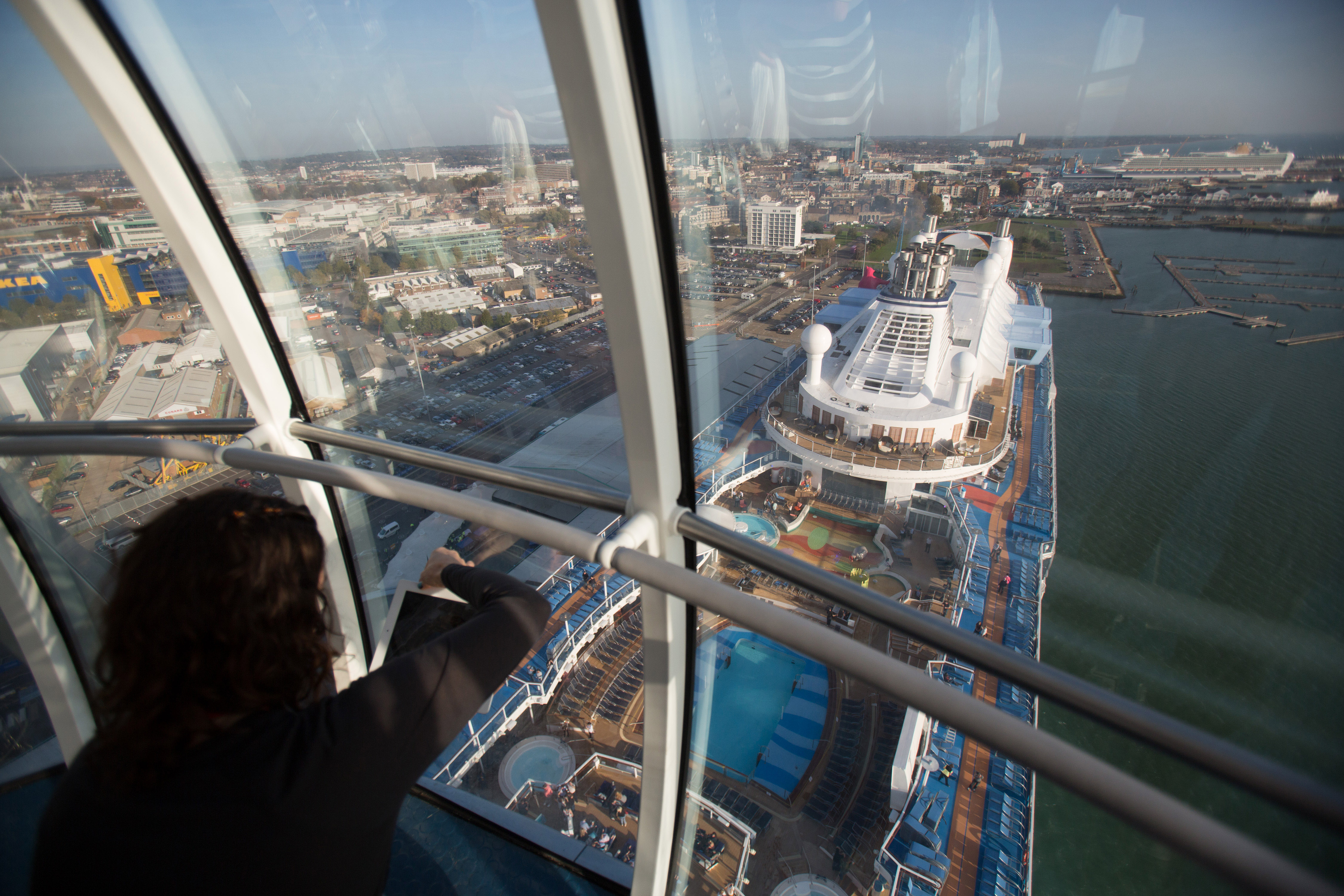
Suddenly a six-hour excursion of the Clyde docks sounded like a spiritual retreat in a Tibetan monastery. It didn't sound like a cruise. It sounded like a migraine with life rafts.
They have a name for this kind of thing. They call it a seacation. And that’s the last time I’ll ever use that word again in my life. For Denise, jumping onboard the Gluttony of the Seas, or whatever it was called, was a transaction as taxing as hopping on the 19 to Kirkby via Norris Green. Certainly, they seemed to leave the city at more or less the same frequency, and they both promised ports of call in mildly terrifying new lands.
Cruising. It’s travel without, like, actually travelling. It reminds me of the time I heard two women talking on the train, one admitting to the other: “I’ve never been to Devon, but I have seen it on Instagram.”
That’s the cruise elevator pitch: sit around staring at someone else’s four walls while, through your window, you can enjoy the cruise line’s daily-changing posts of new city skylines and swaying palms, while a man carves a swan out of ice, or you learn how to make a Panama hat out of banana leaves in the Crafting Corner on deck seven.
It’s an experience that was set to take over the world. Then Covid-19 happened, and all those five-star liners became floating favelas, loitering menacingly just off shore. Clustered awkwardly together, yet not quite fitting in anywhere. From the air they must have looked like Ken Dodd’s dentures.
It all came, naturally, just at the wrong time for Liverpool.
For a generation or so, we turned our backs on the river. But this century’s seen a sea-change in the Mersey’s fortunes that’s as startling — and choppy — as any passing squall in Liverpool Bay.
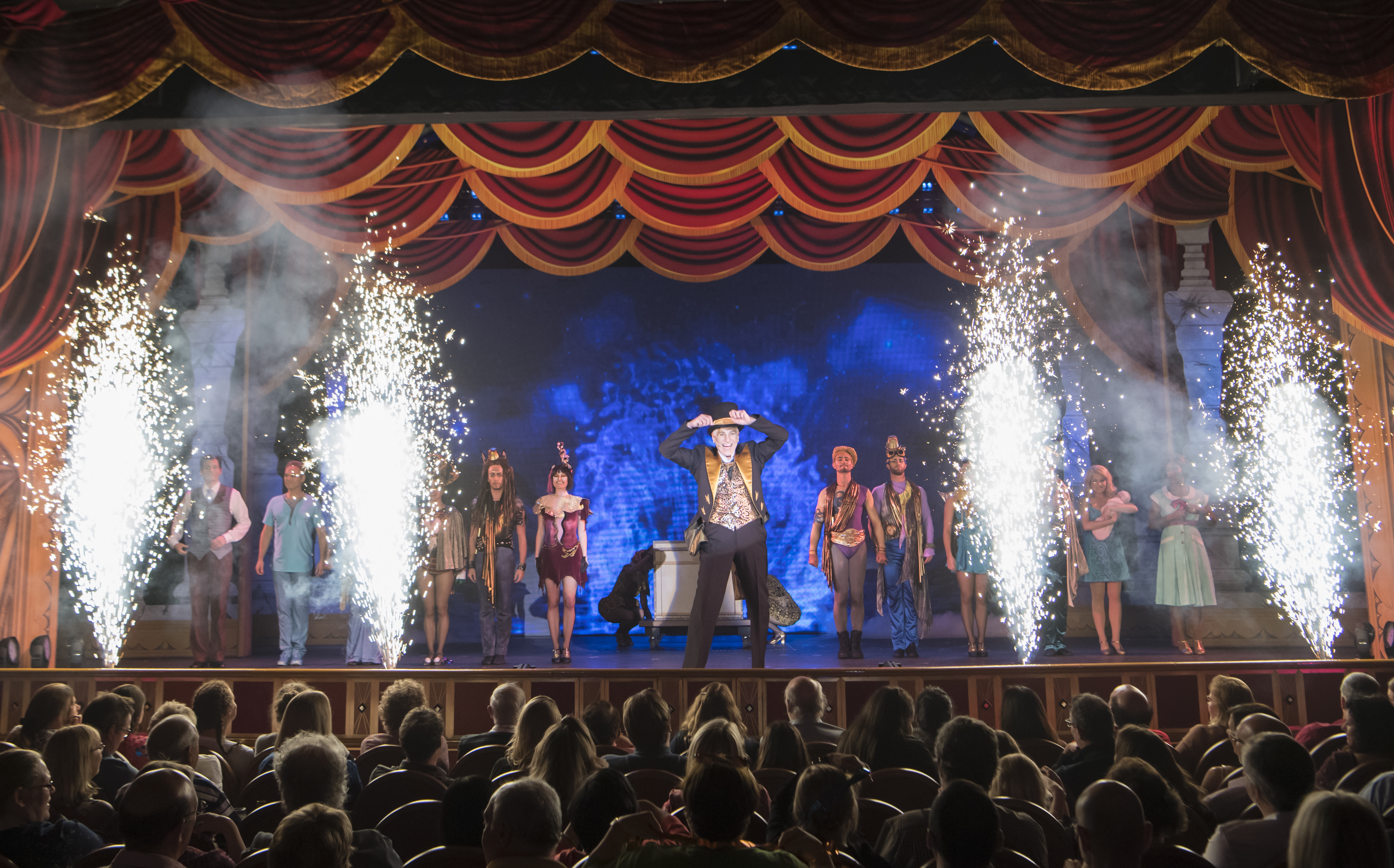
Back in 2006, buoyed by the resurgent cruise market, a newly appointed cruise director for Liverpool, Angie Redhead, packed her bags and headed to the industry’s premier sales event in Miami. “Other ports sent entire departments. For Liverpool, it was just me,” Redhead recalled when I interviewed her a few years ago. “Back then we didn’t even have a terminal. I just sold the dream.”
“It was a massive bun fight,” Redhead admitted. “Every port in the world was trying to secure a ten minute slot with every cruise line director. People who’ve been in the industry for years, who know the cruise line directors’ wives and children. It’s like an exclusive little club. And there was me, this woman from Liverpool, barging into the party.”
Whatever Redhead’s other skills, you really hope she’d put ‘barging in’ on her LinkedIn profile, because it did the job. In 2012 Liverpool opened its new cruise terminal at the Pier Head. After a 40 year hiatus, the first cruise liner left the city on a voyage into the seven seas (well, Bergen and the Norwegian Fjords).
In the first seven years the world’s greatest liners paid us a visit, including that time, like buses, when all three of Cunard’s Queens turned up at once. Collectively, they’ve disgorged over a million visitors, steadying their sea legs before scuttling off to explore our city and spend their money in their six hours-or-so shore leave.
It’s hardly surprising that as the 2019 season came to a close, spirits were high at Princes Dock. The cruise programme for 2020 was set to be the busiest ever — with 108 ships planned, and work had just begun on a new £50 million terminal capable of welcoming the next generation of behemoth liners: holiday resorts at sea, capable of hosting a population the size of Woolton.
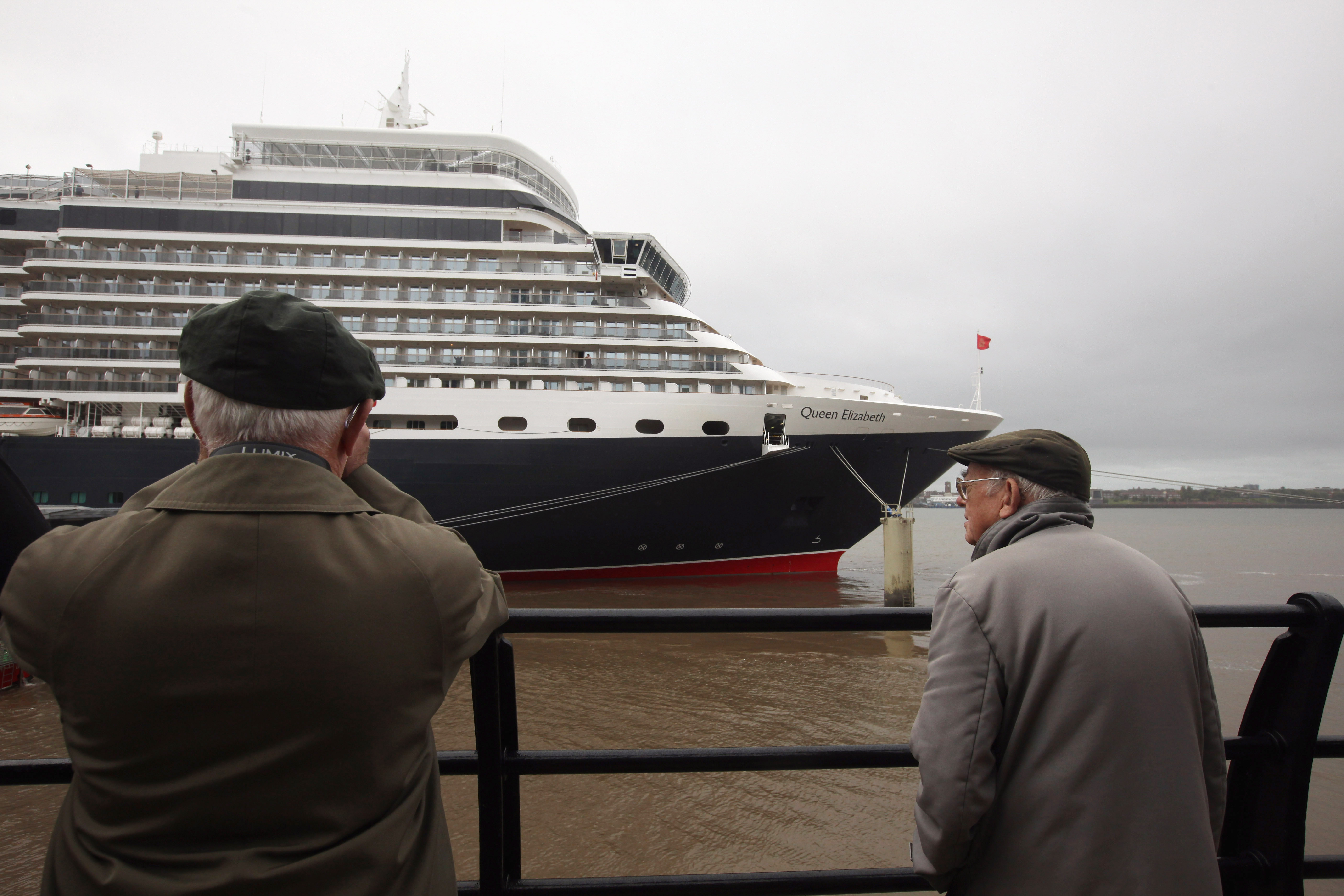
Then, as the pandemic hit, mayors around the world began to refuse cruise liners permission to enter their ports. From Sydney to Fort Lauderdale, sleek liners — tagged “floating petri dishes” by the press — looked like stormfronts approaching, with their cargoes of infected passengers. At one point, a single ship accounted for a third of the world’s Covid-19 cases. How’s that for a snappy social media campaign?
And yet, despite the industry hitting rock bottom it was far from a crippling blow. Passenger numbers for this year are more or less back to where they were before we’d heard of Wuhan and pangolins. And, next year, they’re forecast to be even higher. Covid, it seems, could not sink the cruise industry; although it’s an industry largely kept afloat by the crippling debt it secured to get through the past few years.
For Liverpool’s new cruise director, John Mawer, the view’s a little more nuanced. “I’d say it was a tentative return to the waters,” he says. “We’re looking strong, but we’re still reconciling how much Covid has affected us.”
That’s partly why Liverpool’s new cruise terminal — with full “turnaround” facilities offering the opportunity for more liners to start their voyages from here, rather than just popping in en route — is still on hold. “It might take a couple of years for that to ever be back on the cards,” Mawer says.
“At the moment the official line is we’re on a pause,” Mawer adds, “but the budgets were signed off and the ambition to deliver a new turnaround facility hasn’t gone away.”
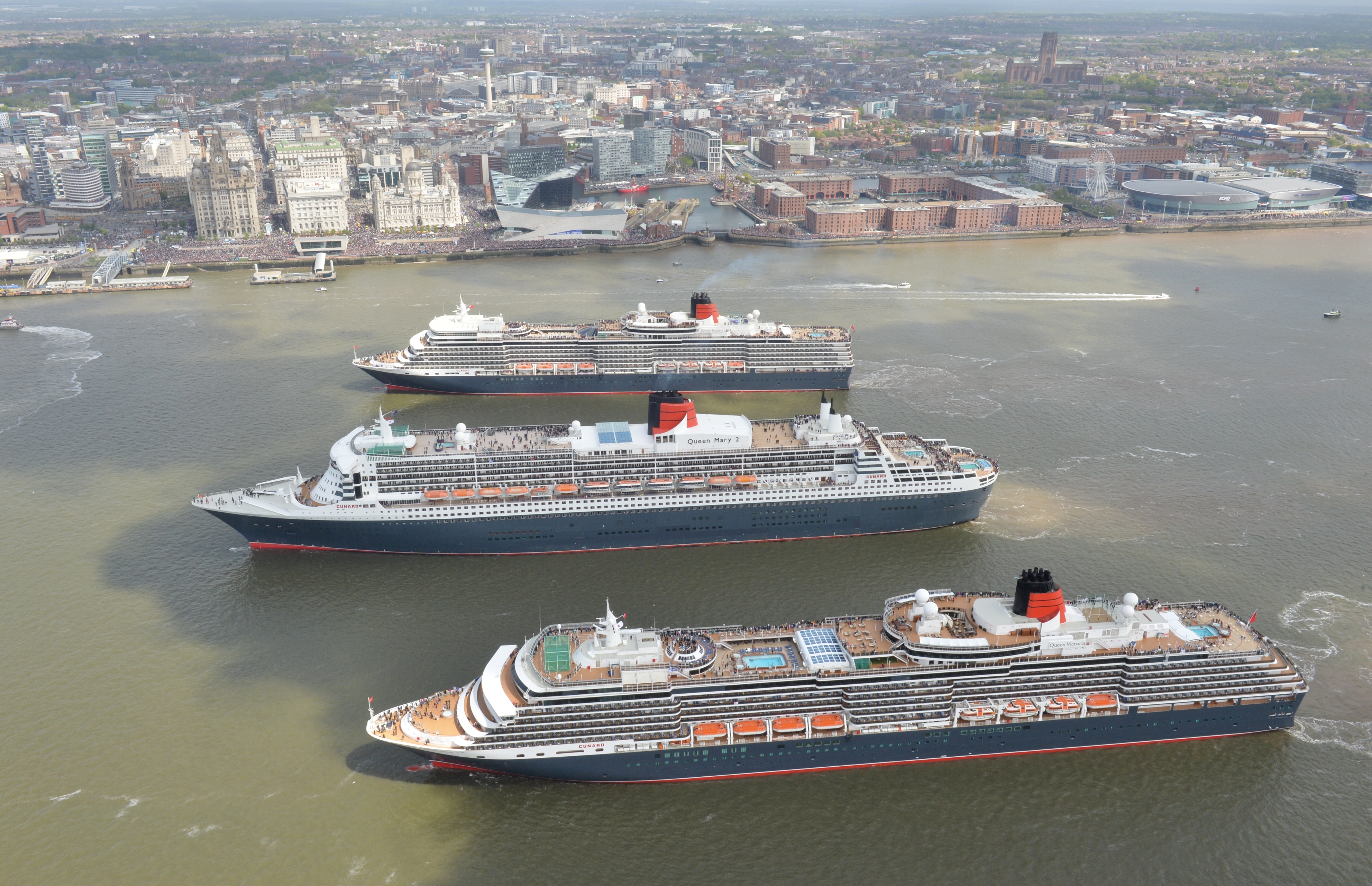
You can see the appeal. There’s a reason why our once-World Heritage Three Graces face out towards the river, and not back to the city. In the early decades of the 20th century the Liver Building was the tallest building in Europe. Our waterfront was designed to impress. But not to impress us — just the rest of the world. Because when the world came, it came up the Mersey.
It’s no accident, also, that the Cunard building is designed to resemble a Venetian palazzo — they look great alongside the water, too. Inside, where Scary Spice’s leopard-print leotard now hangs in the British Music Experience, first class passengers whiled away the hours in Cunard’s sumptuous suite of waiting rooms, being serenaded by a string quartet. Beats the super-sized gazebo passengers have to loiter in these days.
“The cruise lines really want this to happen,” Mawer says. “Disney chose to start their international cruise programme again in Liverpool. That’s a really big deal. They’re really cautious, and they chose us.”
Not all cruise liners are quite so cautious, though. Carnival, one of the liners regularly seen navigating up the river, is currently “on probation” for environmental crimes, says Marcie Keever from Friends of the Earth US.
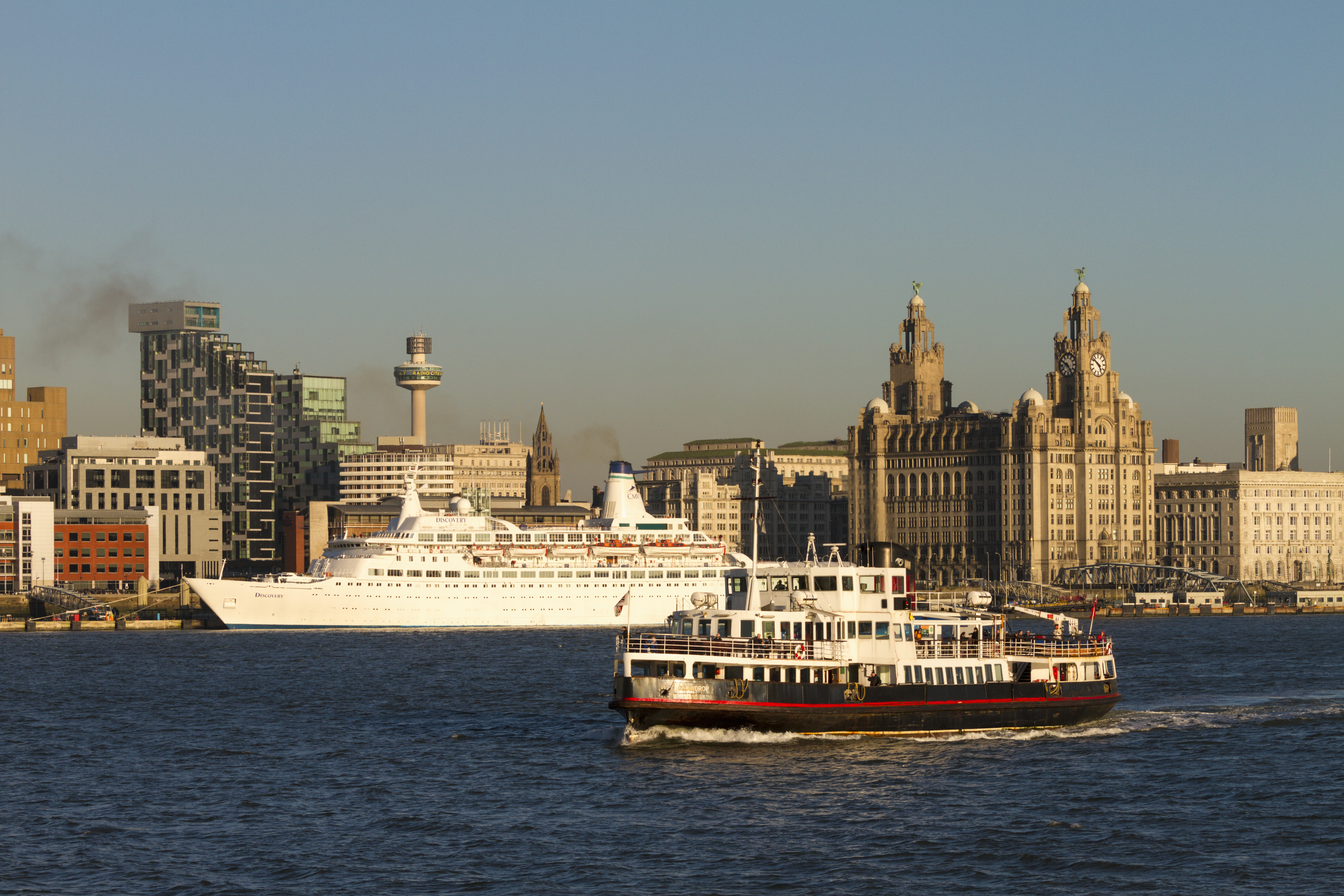
“Carnival is the corporate parent for ten major cruise lines including Princess, Holland America and Costa,” Keever says, explaining that the probation period started before Covid, when Carnival was fined the equivalent of £35 million for illegally dumping oil at sea and then hiding it from regulators.
It’s actually not too hard to do — a friend of mine who works as an engineer on another huge cruise line tells me about the “magic pipe” some ships have: a way to circumvent the ships’ official plumbing system to offload oily bilge, “grey water” and other nasties without anyone (except for, you know, the fishes) being any the wiser.
“No one knows about it,” they tell me, “but engineers do. And not all of them are as scrupulous as you’d hope. Especially when you’ve overshot the targets you have to meet and you’re halfway through a voyage.”
“An engineer spotted one on a Princess Cruise around the British Isles a few years ago and blew the whistle,” they say, “but not before it had dumped thousands of litres of raw sewage just off our coast.” At the time, Princess Cruises said they were “extremely disappointed” and had taken steps to ensure it didn’t happen again. Its parent company? Carnival.
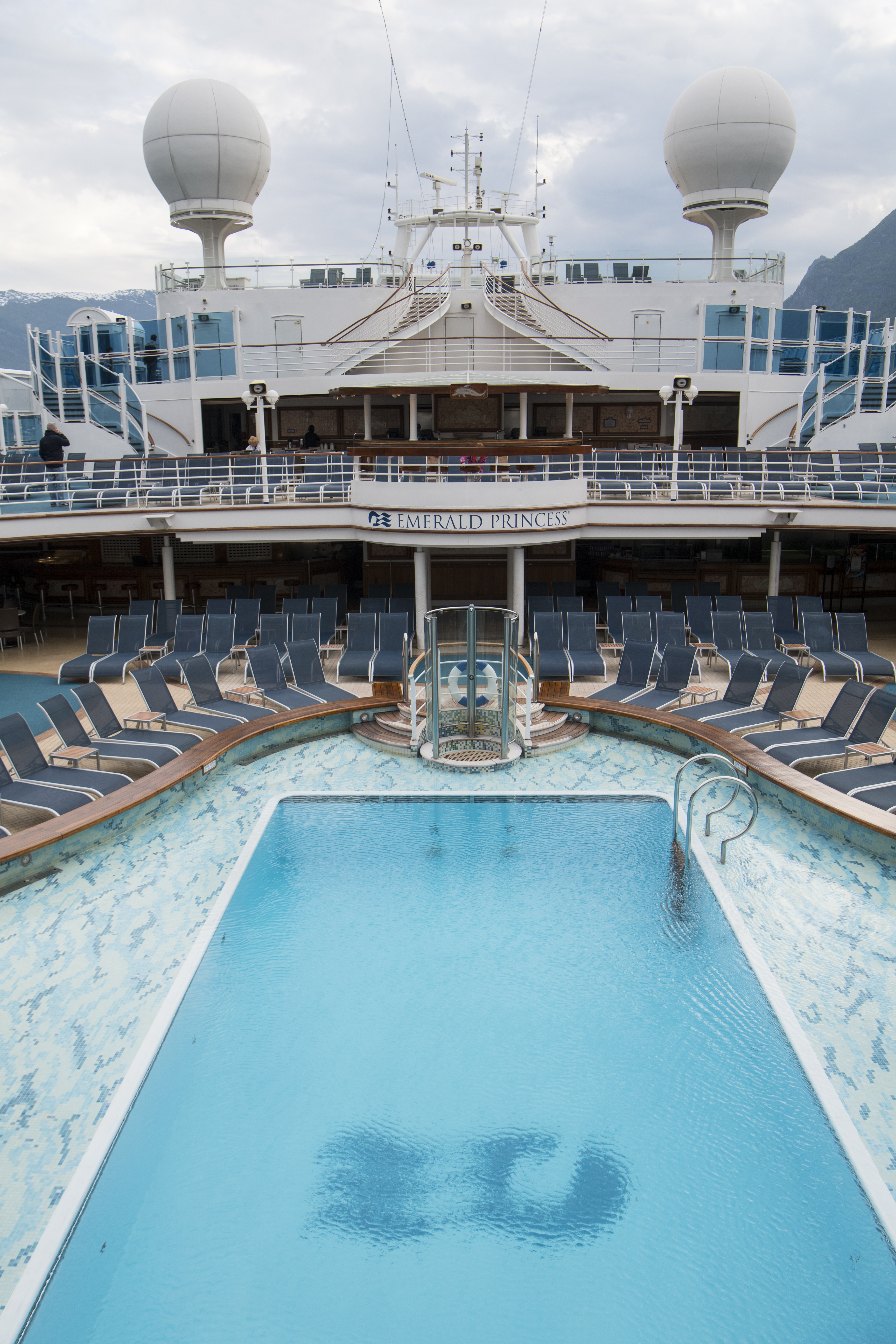
Three years later, Carnival pleaded guilty to falsifying its records to hide such discharges from US authorities. They did it for eight years straight. The same eight years they were being welcomed into the Mersey. The corporation’s also been fined for dumping plastic into the ocean and exceeding limits on air pollution. Still, they do have the Cloud Nine Spa and a world-first onboard rollercoaster, so that offsets things nicely.
It defies logic that any of these mega ships can ever be environmentally friendly: but the statistics still manage to horrify. New research by the University of Exeter shows that a large cruise liner can have a bigger carbon footprint than 12,000 cars, with an overnight stay using 12 times more energy than a stay in a hotel. And it’s not just the illegal dumping — by law they can dump raw sewage three and a half miles from shore — which they do to the tune of more than a billion gallons of sewage a year.
“Most governments refuse to enact strong regulations for the cruise industry,” Keever says, “or they cave under industry pressure.” The Exeter University study reveals that the total amount of rubbish produced by a cruise ship carrying 2,700 passengers — typical of the ships visiting our city — can exceed a ton per day, and that, while cruise vessels make up only a small percentage of the global shipping industry, they account for an estimated 24% of all waste.
But then there are the other figures. The £20 million spent in Liverpool by shore-leavers and crew, and the projected 200,000 visitors our city’s hoping to welcome next year. Who’d be brave enough to say no to that?
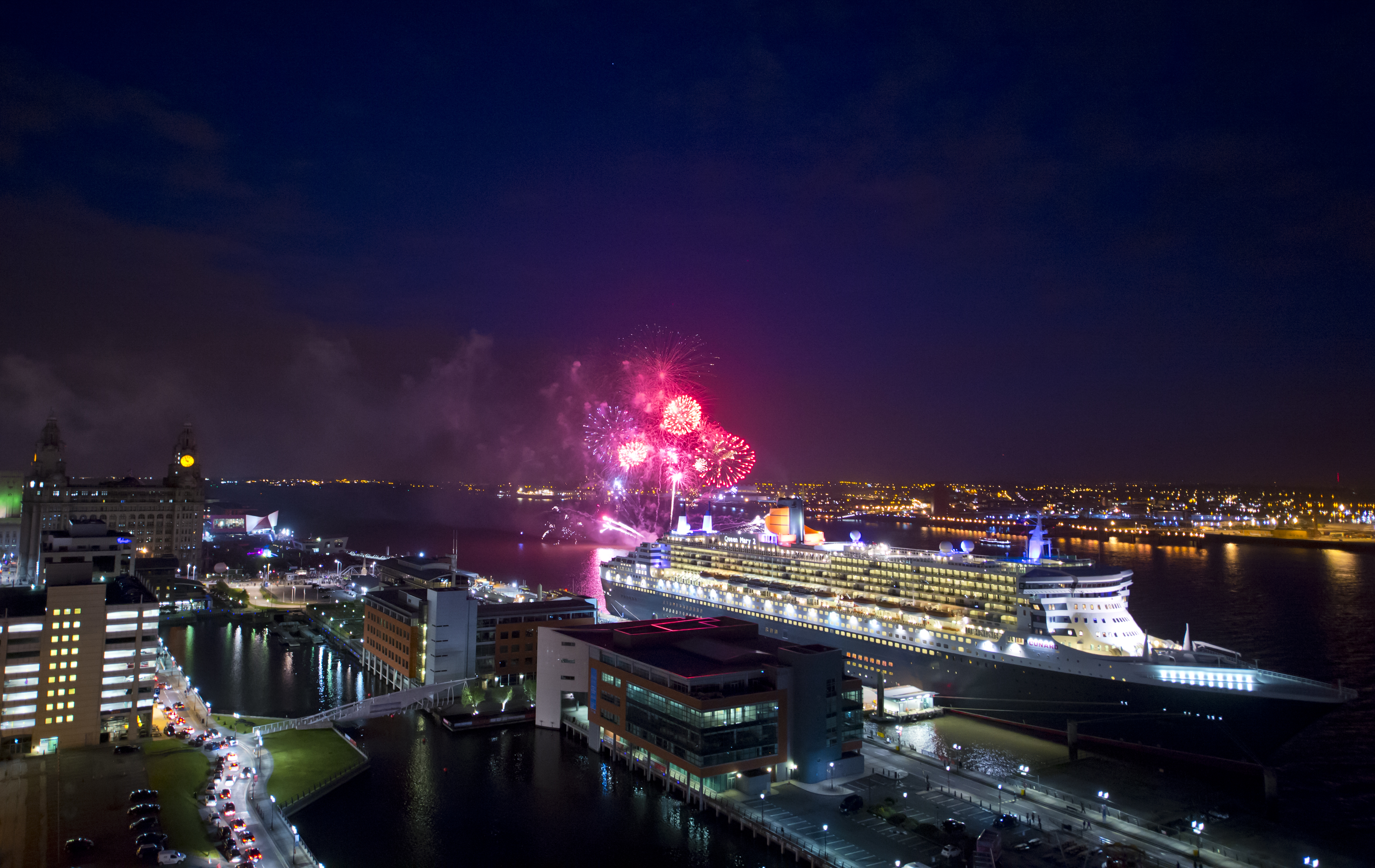
As I write this, we’re helicoptering-in food and water to families stranded on the M20 trying to reach Dover, Folkestone or any route out of the country that’s Taken Back Control and Got Brexit Done. Travel is suddenly a very hot topic, and not something any of us can take for granted in this terrifying new world.
Maybe Denise is right. Maybe a cruise from your front door and back will soon be the only way to travel. Maybe our world is getting smaller: and the chance to explore the planet’s richest cultures and historic cities will be reduced to the wafer-thin engagement of a shuttle tour of their greatest hits.
But it’s not the shuttle tour most American visitors hope for. Mawer admits that Liverpool’s official cruise terminal “greeters” spend most of their time gently letting cruisers down when they jump ashore, desperate to have their photo taken on the Abbey Road zebra crossing. “It’s our job to educate them to the real highlights of the city,” Mawer says, “and when they return to the ship they’re all amazed, and promise to return.”
At least, the ones that do come ashore. Many — you’ve seen them — just gawp at the city from the pool deck. Well, if you’re all-inclusive, why spend any money dining on-shore when you’re only ever three feet away from a moraine of shrimps and caviar?
For Liverpool's resurgent cruise industry one thing is certain, the tide is definitely turning in our direction. The question is — apart from all those cash-rich tourists, what else is it bringing with it in its wake?

Comments
Latest
‘Cutthroats and sell outs’: An editor’s note about Laurence Westgaph’s threats
Ian Byrne: Why the country — not just Liverpool — needs the Hillsborough Law
The ‘charisma bypass’: Why Liverpool’s leaders are so forgettable
The Mersey’s clean-up cost £8 billion. So why is it still so dirty?
If cruising is the answer for Liverpool, what was the question?
'It didn't sound like a cruise. It sounded like a migraine with life rafts'